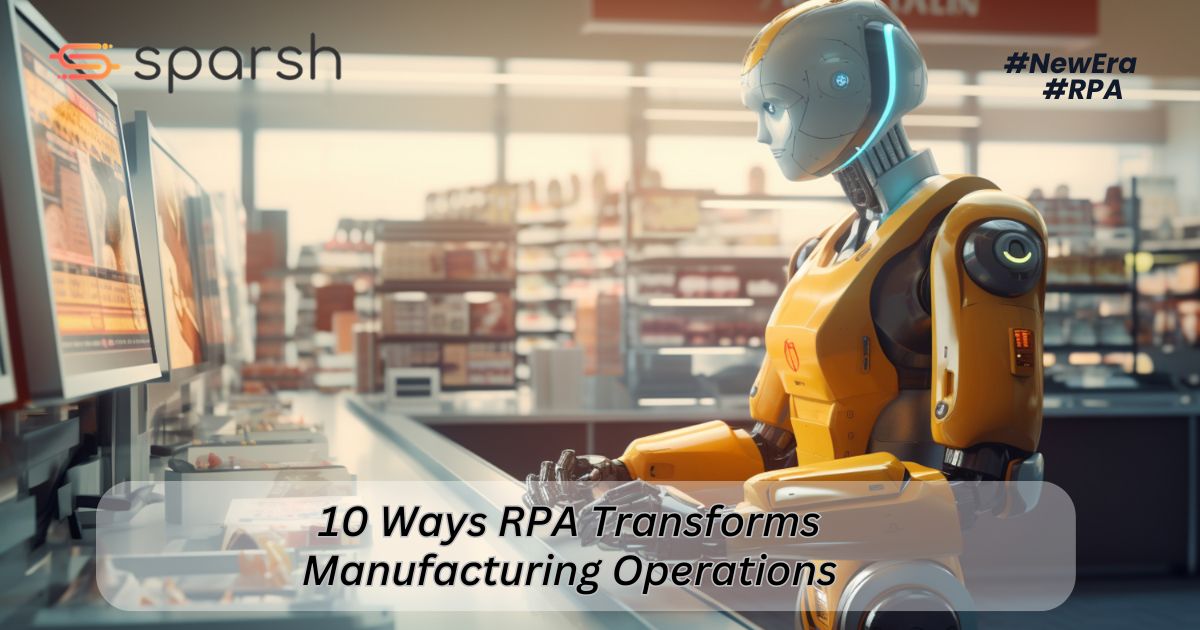10 Ways RPA Transforms Manufacturing Operations
Introduction
In the rapidly evolving landscape of industrial manufacturing, Robotic Process Automation (RPA) has emerged as a cornerstone technology, promising to redefine efficiency, precision, and scalability. This technology automates routine tasks, minimizes human error, and streamlines production processes. Here are ten ways in which RPA, combined with AI, is transforming manufacturing operations, reshaping the industry towards a more innovative future.
1. Streamlining Supply Chain Management
RPA tools can automate various aspects of supply chain management, from ordering materials to inventory control. Bots can handle data entry, track shipments, and update systems in real-time, which reduces delays and enhances the accuracy of inventory levels, leading to more efficient production planning.
2. Enhancing Quality Control
RPA can automate the monitoring of production lines to ensure products meet quality standards. By integrating with IoT devices, RPA can collect data continuously and flag any discrepancies in product quality, allowing for immediate corrective action without human intervention.
3. Optimizing Procurement Processes
RPA simplifies the procurement process by automating order placements, processing invoices, and conducting price comparisons. This not only speeds up operations but also helps manufacturers negotiate better terms with suppliers, reducing costs and improving profit margins.
4. Improving Maintenance and Repairs
Scheduled maintenance is crucial in manufacturing, and RPA can enhance this by automating the scheduling of maintenance tasks based on machine usage or time intervals. Bots can also monitor equipment performance and predict failures before they occur, preventing costly downtime.
5. Boosting Customer Service and Order Processing
RPA can transform customer service operations by automating order processing and tracking, providing customers with real-time updates, and handling customer inquiries and complaints. Better customer loyalty and satisfaction result from this.
6. Increasing Production Flexibility
RPA enables manufacturers to quickly adapt production schedules and processes in response to market changes or customer demands. Bots can recalibrate machines and integrate seamlessly with ERP systems to ensure production lines are optimized for current needs.
7. Enhancing Employee Safety
By automating potentially hazardous tasks, RPA not only increases efficiency but also improves workplace safety. Robots can handle dangerous materials or perform tasks in unsafe environments, reducing the risk of injury.
8. Reducing Operational Costs
RPA reduces labor costs by automating repetitive and time-consuming tasks. This reduction in manual labor not only cuts costs but also allows human employees to focus on more strategic and creative tasks, adding value to the manufacturing process.
9. Facilitating Compliance and Reporting
Manufacturing industries often face stringent regulatory requirements. RPA can automate compliance processes by maintaining records, generating reports, and ensuring that all operations adhere to industry standards and regulations, thereby reducing the risk of non-compliance penalties.
10. Driving Sustainability Efforts
RPA helps manufacturers reduce waste and increase energy efficiency by optimizing resource use and improving process efficiency. This contributes to sustainability goals and reduces the environmental impact of manufacturing activities.
Conclusion
RPA is revolutionizing manufacturing operations by bringing unprecedented levels of efficiency, precision, and innovation. As manufacturers continue to embrace this transformative technology, the potential for growth and improvement in the industry seems boundless. By automating routine tasks, optimizing resource use, and improving product quality, RPA is not just reshaping manufacturing operations—it’s paving the way for a smarter, more sustainable future.
Manufacturers looking to stay competitive in a rapidly changing industry landscape should consider integrating RPA into their operations, harnessing its power to enhance productivity and drive innovation. As this technology continues to evolve, its role in manufacturing will undoubtedly expand, offering even more opportunities for optimization and growth.










